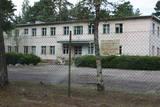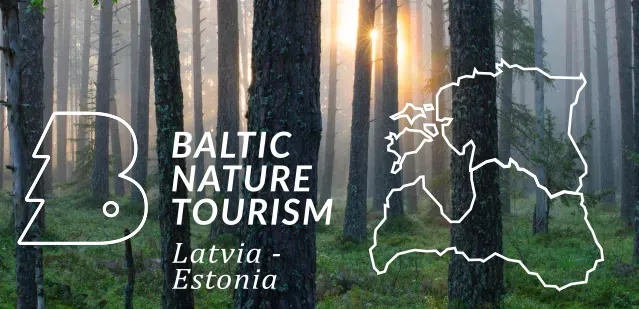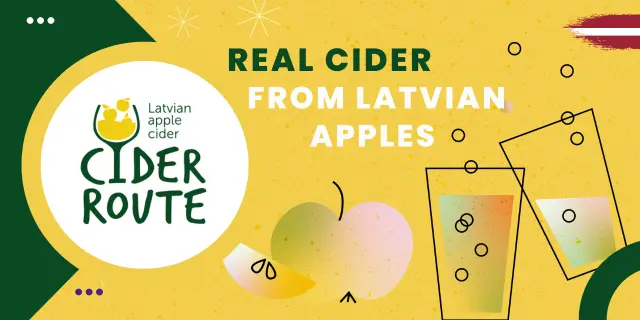The Pāvilosta villagers
It was funny when, during the National Awakening at the end of the 1980-ies, we came together for public celebration of national festivities like Midsummer and looked at our surnames – Popkov, Krivcov, Ivanov, Kourchanov, Jakovlev – Russian names, but people all Latvians. The girls would not go with their husbands when they married. The men stayed here.
A.J. In my childhood, I had a friend in Pāvilosta and I used to come here to visit her. I had to shepherd cows. The border guards also had a cow, called Darja. All the village cows were in one herd and we took turns in shepherding, the shepherds changed every day. The border guards were shepherding cows when it was their turn. They had their own farm with pigs and cows.
When I came to live in Pāvilosta in 1981, my mom could not come easily to visit me. We had to ask permission from the Executive Committee and then the Passport Office issued a pass. Once my mom did not notice that the pass had expired, and the border guard made her get off the bus.
My father-in-law is a Belorussian; he was in military and served in Akmensrags in the beginning of the 1960-ies. My mother-in-law used to tell how they dated whenever he could get off the duty at least for a couple of hours. After military service, he got demobilized and went back to Belorussia. Later he returned to Latvia and they got married.
I.K. My dad Nikolay Zaretsky was from Smolensk. He was taken to military from Donetsk as his father was from there. My father had to serve four years because the military service was extended due to what had happened in Cuba. First, he was in Lithuania, then in Riga, then, since 1962, in Pāvilosta. On January 1, 1963, he met my mom in a New Year’s party. On June 1, 1963, they got married while my dad was still a soldier. He demobilized in November. After that, my father went to sea as a ship mechanic.
There were border guards, missile troops, signallers (attending the locators) and a small marine unit (for a short time). All these units had their quarters across the river Saka. There was a bridge. In the 1960-ies, they built barracks for soldiers and family homes for officers of the missile unit and signallers. To mid 70-ies, their children went to the local Russian school, but then the school was closed and the Russian speaking kids went to Aizpute. There were soldiers of many nationalities, but very few Latvians.
The military had own shop with very good supplies. Sometimes they told us when the shop would have a delivery of oranges and bananas. I first tasted a banana in the beginning of the 70-ies, did not even know what they should be – green or yellow. In the shop, we could buy children tights, shoes. The officer madams did their shopping first. After them, we, the local people were standing in line to buy things – from food to clothing and home textiles (towels, bed linen). The military shop had a different supply than our local shop. At first, we were somewhat afraid, but later we understood that there is nothing to fear.
There were times when petrol was not available. So many local people at Pāvilosta were driving on petrol from the military. They were selling it.
On May 27, it was a Border Guard day, and there was always some celebration, like concerts given in the military quarters or in the local club. Children went there to congratulate the border guards.
Border guards took part in joint work when we had something organised, and they also helped in repair and maintenance works in town sending their machinery and people.
On February 23, the Day of Soviet Army and Navy, the border guards were coming to school to judge the military drill contests.
Many officers lived here with their families, most of the officer wives worked, for example, in the nursery school. In my time, a medical nurse there was an officer’s wife. She was very nice, with long wavy hair.
What seemed very interesting and unusual to the local people was that the officers always helped their wives to take their kids to doctor. The local people never did so and they were surprised. An officer would always help to undress and dress the kids.
Quite many girls from Pāvilosta married to soldiers. My father served in the missile unit at Pāvilosta.
It was funny when, during the National Awakening at the end of the 1980-ies, we came together for public celebration of national festivities like Midsummer and looked at our surnames – Popkov, Krivcov, Ivanov, Kourchanov, Jakovlev – Russian names, but people all Latvians. The girls would not go with their husbands when they married. The men stayed here.
There are still two men, Zinchenko and Zaharov, who worked in the military headquarters. Zaharov works now in Liepāja, it is not easy to meet him. From Latvians, there was Ilmars Roze, he was an officer and lives now in Kuldīga.
A.J. In Pāvilosta school, a border guard interest group for schoolchildren was formed in the beginning of the 1960-ies. When I started to work at school, there already were several interest groups. Orida Grinberga who was the founder of the Pāvilosta museum, started to develop cooperation between the school and boarder guard. When we had school hiking trips, one of the musts was visiting the border guard. Kids liked it very much as the border guards had always prepared something interesting. They let to see the guns, but the main attraction was the border guard dogs. If a hike did not include visiting the border guard, the event actually failed. The border guards were showing their living quarters, training and staff rooms, the canteen, etc. I always remember the perfectly tidy barracks, the blankets stretched so tight over the beds. The yard was also well tendered; there were flowerbeds. When the army went away, they left all the territory in perfect order.
I was leading the border guard interest group since 1987. Girls were as active participants as boys were. My task was simple – once a week I had to take schoolchildren to the military quarters and they were occupied there – learned to use radio sets, disassemble and assemble assault rifles, played different war games. Competitions were organised, our group took the first place in a competition at Vārme, and we got a prize – the radio set “Selga”. In those hiking trips, schoolchildren were admitted to the restricted zone. A list of participants was made every time. They went hiking along the seashore from the Southern piers at Pāvilosta to Akmensrags.
I.K. There is a local saying related to the Pāvilosta piers: „Mi skaimiņam paidjom na mol zuš laviķ!” (mixing Russian and Latvian language “I am going to the piers to catch “zuši” with my “kaimiņš””). This is how it came: when we wanted to go fishing at the piers, we had to notify the border guard. One of the men had already forgotten his Russian before learning proper Latvian, so he spoke mixing words from both languages. He wanted to go with his neighbor, but, speaking in Russian, he said the word “neighbor” in Latvian. The border guard would take the list of local villagers and look for the surname “kaimiņš”, but could not find such a person because “kaimiņš” is just the Latvian word for “neighbor”.
Actually all the big bosses went to sea fishing salmon together with the local fishermen.
Seacoast fishing was not allowed in Pāvilosta. Men went sea fishing with RB ships that were checked by border guard every morning before leaving and every evening on return.
We could go swimming only in a designated site from the Northern piers to the Great Jūrakmens boulder, approximately 1km. In summer, we could stay by the sea until 10 p.m. The seaside was harrowed every day until mid 70-ies. Taking photos on the seaside was strongly forbidden; therefore, photos of these times are rare. There are no photos of the presently famous Grey Dune. Earlier seaweeds were dried there. Now people argue about how it really looked at that time.
Most of amber and all kinds of interesting things were washed out from the sea in the restricted zone behind the Jūrakmens boulder. Boys went fast on mopeds to collect the staff, but border guard caught them from time to time. The boys had to peel potatoes for border guards then. The border guards let them keep the amber and the “trophies”.
A.J. Once my friend Anita and I, we were sitting in the yard chatting with some young men. There was also the Executive Committee building facing that yard. One of the boys touched the glass with his hand by chance. Suddenly a border guard van came into the yard, armed soldiers jumped out of it, ordered the boys to put their hands behind back and took them away in their van. They took the boys to their quarters and made them peel potatoes for three hours before they could go home. This was just for nothing.
When I came to live in Pāvilosta in 1981, my mom could not come easily to visit me. We had to ask permission from the Executive Committee and then the Passport Office issued a pass. Once my mom did not notice that the pass had expired, and the border guard made her get off the bus.
My father-in-law is a Belorussian; he was in military and served in Akmensrags in the beginning of the 1960-ies. My mother-in-law used to tell how they dated whenever he could get off the duty at least for a couple of hours. After military service, he got demobilized and went back to Belorussia. Later he returned to Latvia and they got married.
I.K. My dad Nikolay Zaretsky was from Smolensk. He was taken to military from Donetsk as his father was from there. My father had to serve four years because the military service was extended due to what had happened in Cuba. First, he was in Lithuania, then in Riga, then, since 1962, in Pāvilosta. On January 1, 1963, he met my mom in a New Year’s party. On June 1, 1963, they got married while my dad was still a soldier. He demobilized in November. After that, my father went to sea as a ship mechanic.
There were border guards, missile troops, signallers (attending the locators) and a small marine unit (for a short time). All these units had their quarters across the river Saka. There was a bridge. In the 1960-ies, they built barracks for soldiers and family homes for officers of the missile unit and signallers. To mid 70-ies, their children went to the local Russian school, but then the school was closed and the Russian speaking kids went to Aizpute. There were soldiers of many nationalities, but very few Latvians.
The military had own shop with very good supplies. Sometimes they told us when the shop would have a delivery of oranges and bananas. I first tasted a banana in the beginning of the 70-ies, did not even know what they should be – green or yellow. In the shop, we could buy children tights, shoes. The officer madams did their shopping first. After them, we, the local people were standing in line to buy things – from food to clothing and home textiles (towels, bed linen). The military shop had a different supply than our local shop. At first, we were somewhat afraid, but later we understood that there is nothing to fear.
There were times when petrol was not available. So many local people at Pāvilosta were driving on petrol from the military. They were selling it.
On May 27, it was a Border Guard day, and there was always some celebration, like concerts given in the military quarters or in the local club. Children went there to congratulate the border guards.
Border guards took part in joint work when we had something organised, and they also helped in repair and maintenance works in town sending their machinery and people.
On February 23, the Day of Soviet Army and Navy, the border guards were coming to school to judge the military drill contests.
Many officers lived here with their families, most of the officer wives worked, for example, in the nursery school. In my time, a medical nurse there was an officer’s wife. She was very nice, with long wavy hair.
What seemed very interesting and unusual to the local people was that the officers always helped their wives to take their kids to doctor. The local people never did so and they were surprised. An officer would always help to undress and dress the kids.
Quite many girls from Pāvilosta married to soldiers. My father served in the missile unit at Pāvilosta.
It was funny when, during the National Awakening at the end of the 1980-ies, we came together for public celebration of national festivities like Midsummer and looked at our surnames – Popkov, Krivcov, Ivanov, Kourchanov, Jakovlev – Russian names, but people all Latvians. The girls would not go with their husbands when they married. The men stayed here.
There are still two men, Zinchenko and Zaharov, who worked in the military headquarters. Zaharov works now in Liepāja, it is not easy to meet him. From Latvians, there was Ilmars Roze, he was an officer and lives now in Kuldīga.
A.J. In Pāvilosta school, a border guard interest group for schoolchildren was formed in the beginning of the 1960-ies. When I started to work at school, there already were several interest groups. Orida Grinberga who was the founder of the Pāvilosta museum, started to develop cooperation between the school and boarder guard. When we had school hiking trips, one of the musts was visiting the border guard. Kids liked it very much as the border guards had always prepared something interesting. They let to see the guns, but the main attraction was the border guard dogs. If a hike did not include visiting the border guard, the event actually failed. The border guards were showing their living quarters, training and staff rooms, the canteen, etc. I always remember the perfectly tidy barracks, the blankets stretched so tight over the beds. The yard was also well tendered; there were flowerbeds. When the army went away, they left all the territory in perfect order.
I was leading the border guard interest group since 1987. Girls were as active participants as boys were. My task was simple – once a week I had to take schoolchildren to the military quarters and they were occupied there – learned to use radio sets, disassemble and assemble assault rifles, played different war games. Competitions were organised, our group took the first place in a competition at Vārme, and we got a prize – the radio set “Selga”. In those hiking trips, schoolchildren were admitted to the restricted zone. A list of participants was made every time. They went hiking along the seashore from the Southern piers at Pāvilosta to Akmensrags.
I.K. There is a local saying related to the Pāvilosta piers: „Mi skaimiņam paidjom na mol zuš laviķ!” (mixing Russian and Latvian language “I am going to the piers to catch “zuši” with my “kaimiņš””). This is how it came: when we wanted to go fishing at the piers, we had to notify the border guard. One of the men had already forgotten his Russian before learning proper Latvian, so he spoke mixing words from both languages. He wanted to go with his neighbor, but, speaking in Russian, he said the word “neighbor” in Latvian. The border guard would take the list of local villagers and look for the surname “kaimiņš”, but could not find such a person because “kaimiņš” is just the Latvian word for “neighbor”.
Actually all the big bosses went to sea fishing salmon together with the local fishermen.
Seacoast fishing was not allowed in Pāvilosta. Men went sea fishing with RB ships that were checked by border guard every morning before leaving and every evening on return.
We could go swimming only in a designated site from the Northern piers to the Great Jūrakmens boulder, approximately 1km. In summer, we could stay by the sea until 10 p.m. The seaside was harrowed every day until mid 70-ies. Taking photos on the seaside was strongly forbidden; therefore, photos of these times are rare. There are no photos of the presently famous Grey Dune. Earlier seaweeds were dried there. Now people argue about how it really looked at that time.
Most of amber and all kinds of interesting things were washed out from the sea in the restricted zone behind the Jūrakmens boulder. Boys went fast on mopeds to collect the staff, but border guard caught them from time to time. The boys had to peel potatoes for border guards then. The border guards let them keep the amber and the “trophies”.
A.J. Once my friend Anita and I, we were sitting in the yard chatting with some young men. There was also the Executive Committee building facing that yard. One of the boys touched the glass with his hand by chance. Suddenly a border guard van came into the yard, armed soldiers jumped out of it, ordered the boys to put their hands behind back and took them away in their van. They took the boys to their quarters and made them peel potatoes for three hours before they could go home. This was just for nothing.
| Tourism objects involved in this story | ||
|---|---|---|
Auch heutiges Territorium der Grenzwache in Pāvilosta ist für Zivilpersonen geschlossen. Das Territorium wird für Bedürfnissen der Seestreitkräfte genutzt. |
||









